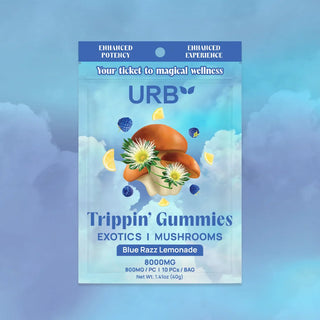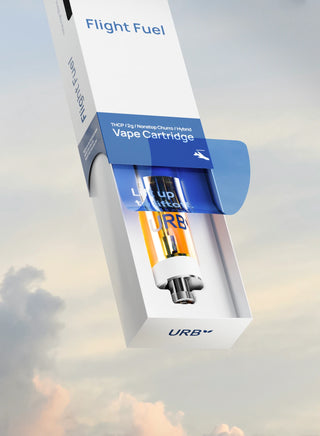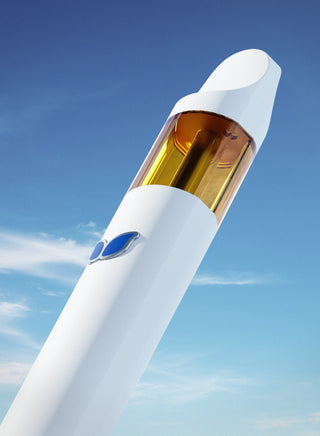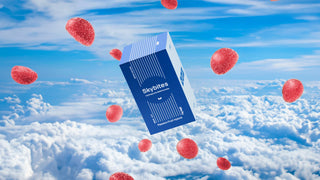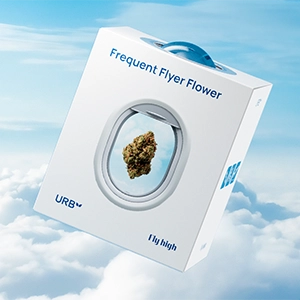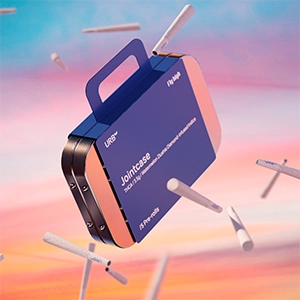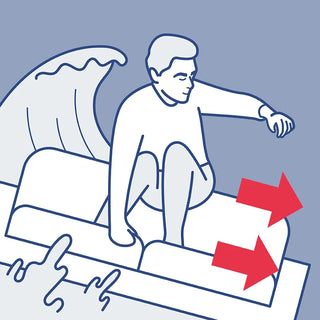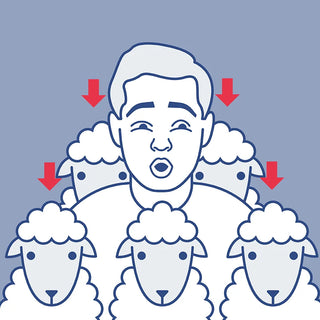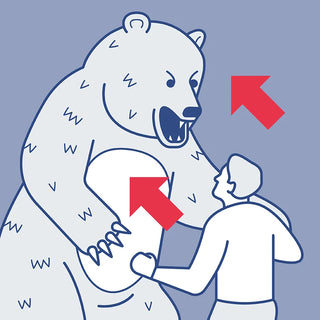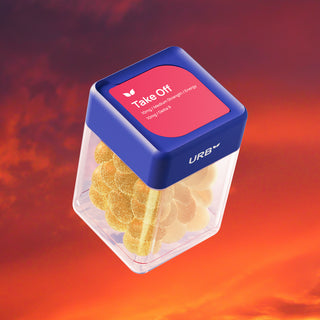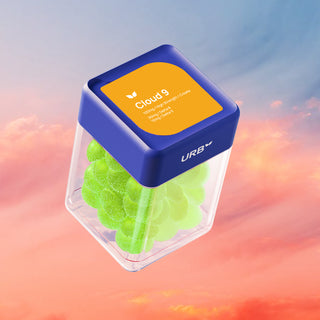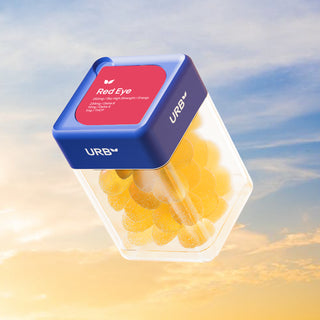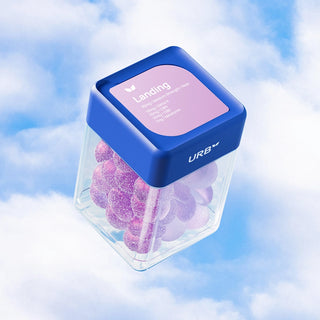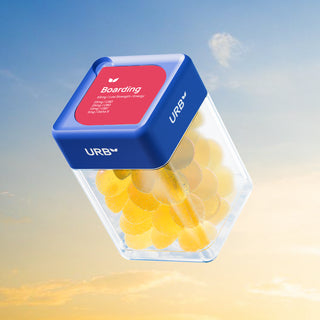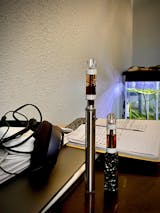THC vs THCP: what’s the difference? In recent years, a wave of new cannabinoids has hit the cannabis market, each promising unique, nuanced, or more targeted effects. One of the most intriguing is THCP—a compound generating plenty of buzz thanks to its potentially high potency and unique chemistry.
But because THCP looks so similar to the more familiar THC compound, it’s easy to get confused about what truly sets it apart.
Whether you’re here out of curiosity, planning your next purchase, or just trying to understand the hype, you’re in the right place. We’ll keep the science simple, compare effects side by side, and give you the knowledge you need to shop with confidence.
What This Post Will Cover
We’ll answer the questions cannabis consumers are asking most, including:
- How do THC and THCP differ at the molecular level?
- Is THCP more potent than THC?
- How distinct are their effects?
- Where might you find THCP in cannabis products?
- What should you look for when choosing a THCP product?
THC: The Classic Starting Point
If you know cannabis, you know Delta-9 THC. It’s the cannabinoid most responsible for those classic psychoactive effects and the one that set the standard for how we think about cannabis experiences. But THC isn’t the only active compound in the spotlight anymore. Another psychoactive player, THCP, is challenging the status quo and may change the way you think about potency.

So, what does THC actually do? Quite a lot. Many people associate it with an unmistakable euphoric lift, a sense of full-body relaxation, and, yes, the legendary “munchies.”
These effects come down to THC’s molecular structure, which allows it to bind with the body’s endocannabinoid receptors—especially CB1 receptors in the brain and nervous system. As you’ll see later, even small changes to that structure, like the ones found in THCP, can make a big difference in how the body responds.
THCP: The New Contender
In 2019, Italian researchers made a surprising discovery: the cannabis plant contains another cannabinoid similar to THC, but with a twist: it interacts with our receptor cells much more strongly.
The key lies in its molecular structure. Both THC and THCP have “side chains,” but THCP’s are longer alkyl side chains. This small change helps it bind more readily with CB1 receptors in the brain and nervous system.
How much more readily? Early studies suggest THCP may bind up to 33 times more strongly to these receptors than THC. It’s a fascinating finding, but most of the data so far comes from animal testing in mice. That means it’s too early to say exactly how much more potent THCP is for humans.
Most of the THCP you’ll find for sale — including the exceptionally pure version we use at Urb — is not extracted directly from cannabis flower. Instead, it’s produced in a lab from hemp-derived CBD using a precise, controlled process.
Go beyond the basics: What is THCP?
THC vs THCP: Side-by-Side Comparison
It can be pretty easy to confuse THC and THCP. For most people, what’s most important to know is that when comparing THCP vs THC side by side, research suggests that THCP binds some 33 times more strongly to CB1 endocannabinoid receptors than THC. But does that mean THCP gets you 33 times higher than THC? Not necessarily.
We’re all a bit different, and our bodies react differently to cannabinoids. Variables such as gender, genetics, age, weight, and prior cannabis experience all have an impact. THCP is often found blended with other cannabinoids, and the entourage effect can impact the potency of the THCP experience. Here’s a quick guide to keeping the two compounds straight:
- Discovery & Research: THC was first isolated in the 1960s, while THCP was only identified in 2019. Thus, THC has been studied for decades, while there’s only limited research on THCP—most of it animal-based—so more studies are needed to build greater knowledge around its use.
- Potency: Initial rodent studies suggest that THCP binds to our CB1 receptors up to 30 times more strongly than THC, but that doesn’t always translate to 33 times more potent effects.
- Effects: The effects of THC typically include euphoria and relaxation, with secondary compounds, such as terpenes, imparting subtler characteristics such as focus or calm. THCP’s effects are reported as being more intense and longer-lasting, especially in higher doses.
- Legality: THC is widely available in both medical and adult-use cannabis markets. Newer, rarer, and often sold online in blends with other cannabinoids, THCP products are typically derived from hemp. While this means they should have legal status under the 2018 Farm Bill, some states have moved to restrict the sale of hemp-derived compounds. If you’re unsure, check the laws where you live.
When it comes down to it, THC is the familiar classic, while THCP is the newer, more mysterious cannabinoid that’s still revealing its secrets. Knowing the differences and the similarities can help you choose the cannabis experience that fits your mood, goals, and comfort level.
What Does THCP Feel Like?
We’ve covered THC vs THCP on the molecular level, but what about the experience? While research is still limited, some consumers report that THCP may produce more intense effects than THC. These can include a pronounced euphoria and a deeply relaxing body sensation.
Anecdotally, some compare it to the couch-lock often associated with heavier indica strains, describing a stronger “sink into your seat” feeling. As with all cannabinoids, individual experiences vary widely based on factors like tolerance, body chemistry, and product formulation.
THCP vs THC: Onset & Duration
THCP appears to have a slower onset and longer duration compared to THC. Inhaled THC effects are typically felt almost immediately, while THCP effects may take up to 15 minutes to fully develop. Where inhaled THC might last around two hours, THCP has been reported to linger for 4–6 hours.
Edibles can extend the experience further, potentially up to eight hours or more. Because edible onset can take up to two hours, it’s important to wait before taking more. Taking additional doses too soon may result in stronger, longer-lasting effects than expected.
THCP vs THC: Dosage
The “start low, go slow” rule applies here. Possible side effects of THC—such as dry eyes, dry mouth, increased heart rate, or feelings of unease—may also occur with THCP, and in some cases, may be more pronounced. Starting with a low dose and giving your body time to respond is the best way to approach THCP products safely.
Is THCP Stronger than THC?
According to the recent animal research noted above, THCP is stronger than THC. In rodent-based research it shows a binding affinity to the cannabinoid receptors that’s roughly 33 times higher than regular THC.
 Still, it’s important to remember that “33 times greater binding affinity” doesn’t necessarily equate with “33 times stronger effects.” A number of factors impact our experience of cannabinoids, including:
Still, it’s important to remember that “33 times greater binding affinity” doesn’t necessarily equate with “33 times stronger effects.” A number of factors impact our experience of cannabinoids, including:
- Metabolism
- Other individual physical traits, like age and gender
- Tolerance
- Delivery method
Plus, since THCP is often included in formulations with other cannabinoids, those cannabinoids may have a greater impact on the overall experience than pure THCP. For example, a blend of CBD and THCP will feel different than a blend of CBG and THCP, and so on.
Real-World Products: How THCP Is Consumed
THCP is a relatively new cannabinoid on the scene, so it’s still finding its way into the general marketplace. Here’s what’s out there today, and where Urb fits in if you’re curious about trying it for yourself:
Vape Carts: With their easy swap-and-go design, carts are a great way to explore exciting new cannabinoids like THCP. Given its potency, it’s typically blended rather than used on its own. At Urb, we incorporate THCP into our Mile High Flight Fuel 420 Max for a dispensary-grade boost of intensity.
Disposable Vapes: Made for maximum convenience, disposable vaporizers are a great way to explore exciting new cannabinoids like THCP in an easy, on-the-go format. Given its potency, it’s typically blended rather than used on its own. At Urb, we incorporate THCP into our Mile High Aerovape 420 Max for a dispensary-grade boost of intensity.
Gummies and Edibles: As one of the simplest (and yummiest) ways to access cannabinoids, THCP gummies and edibles are gaining popularity. We add it to our Gummy Getaway St. Lucia edibles to give them their signature potency.
Tinctures: As a consistent and easy-to-dose format, tinctures are tough to beat. While it’s still rare to find THCP in tincture form, it’s a safe bet that sooner or later, you’ll see THCP tinctures lining dispensary shelves.
Blended Products: THCP rarely appears on its own, thanks to its sky-high potency. Instead, it’s typically blended with other cannabinoids such as Delta-9 THC, THCV, and more.
From vapes to gummies, THCP is showing up in formats that make it easy to explore without overdoing it. While it’s still a newcomer, its role in blended products means you can experience its unique profile alongside other cannabinoids for a more balanced, curated effect. At Urb, we craft these blends intentionally so that you can explore THCP with confidence.
How to Shop Smart for THCP
When there’s limited research and few consumer reviews, it’s important to approach new cannabinoids with extra care.
- Look for products that are clearly labeled with verified potency data and full ingredient details.
- Avoid anything with exaggerated claims or vague descriptions. Potency and effects can vary widely between brands and formulations, especially with cannabinoids like THCP.
- Prioritize transparency. Choose brands that share third-party certificates of analysis (COAs) for every product.
When in doubt, stick with brands you trust. A little extra research goes a long way toward making sure your THCP experience is both safe and enjoyable.
THCP vs THC: Which One’s Right for You?
When you’re comparing two similar-sounding cannabinoids, it can be tough to cut through the noise. Think of THC as the classic choice—familiar, widely available, and offering strong yet manageable effects that most people can navigate comfortably. THCP, on the other hand, is its far more potent cousin: newer, more intense, and often best suited for experienced or high-tolerance consumers who are ready to explore uncharted territory.
At Urb, we’re always chasing what’s next in the cannabinoid world, crafting experiences that balance curiosity with quality. If you’re ready to see what THCP can bring to your journey, or any other unique cannabinoid that’s caught your eye, we’ll make sure you do it the Urb way.
